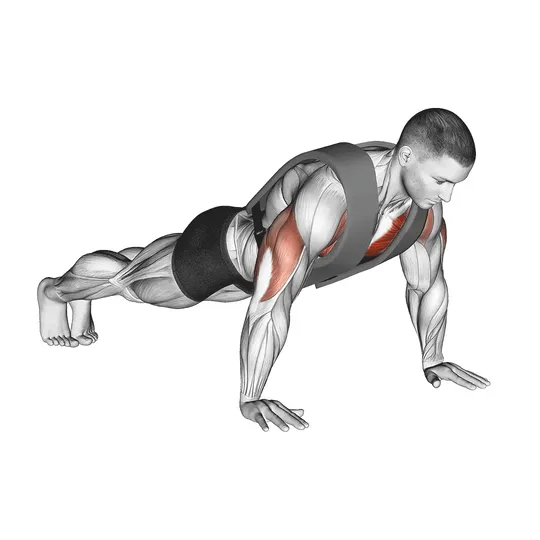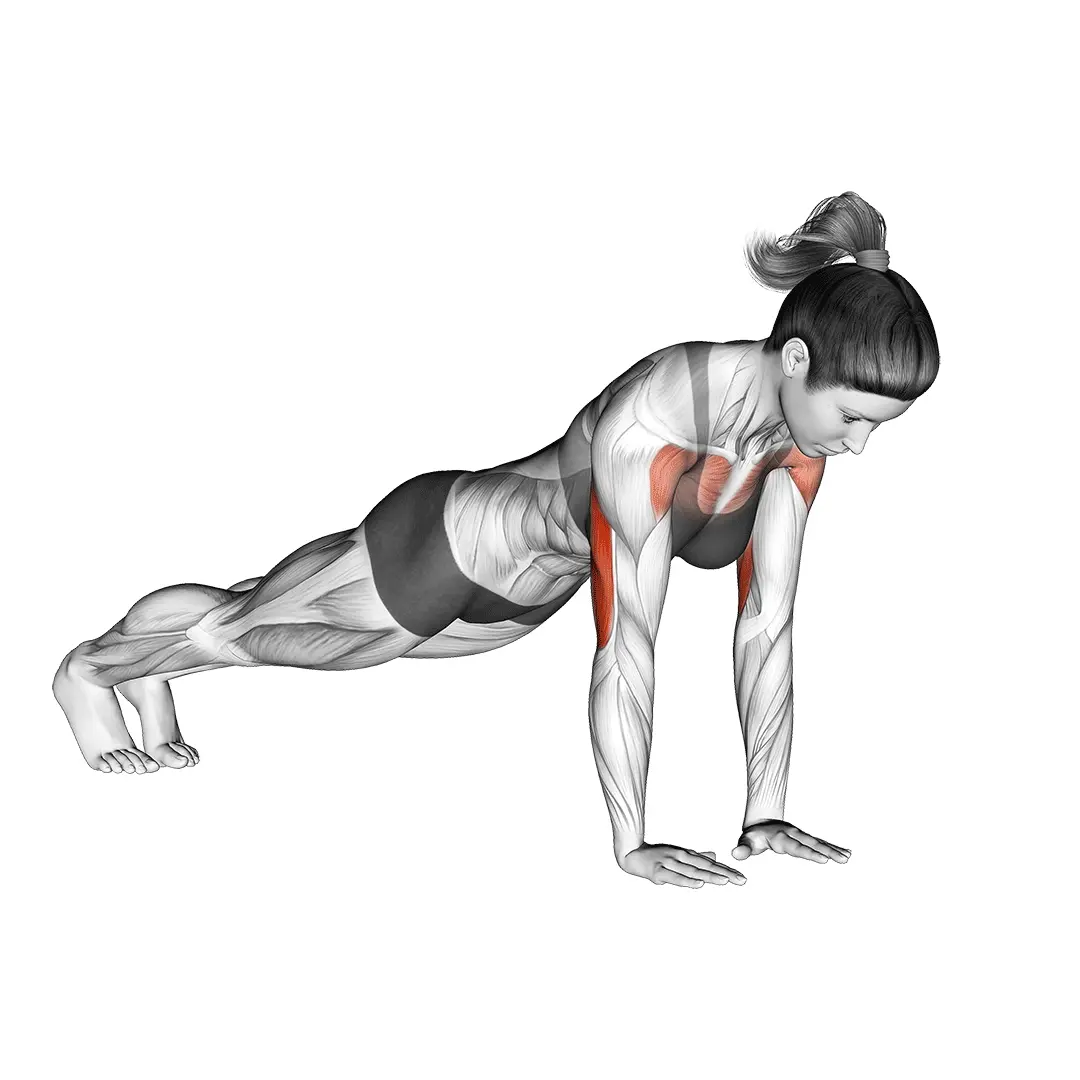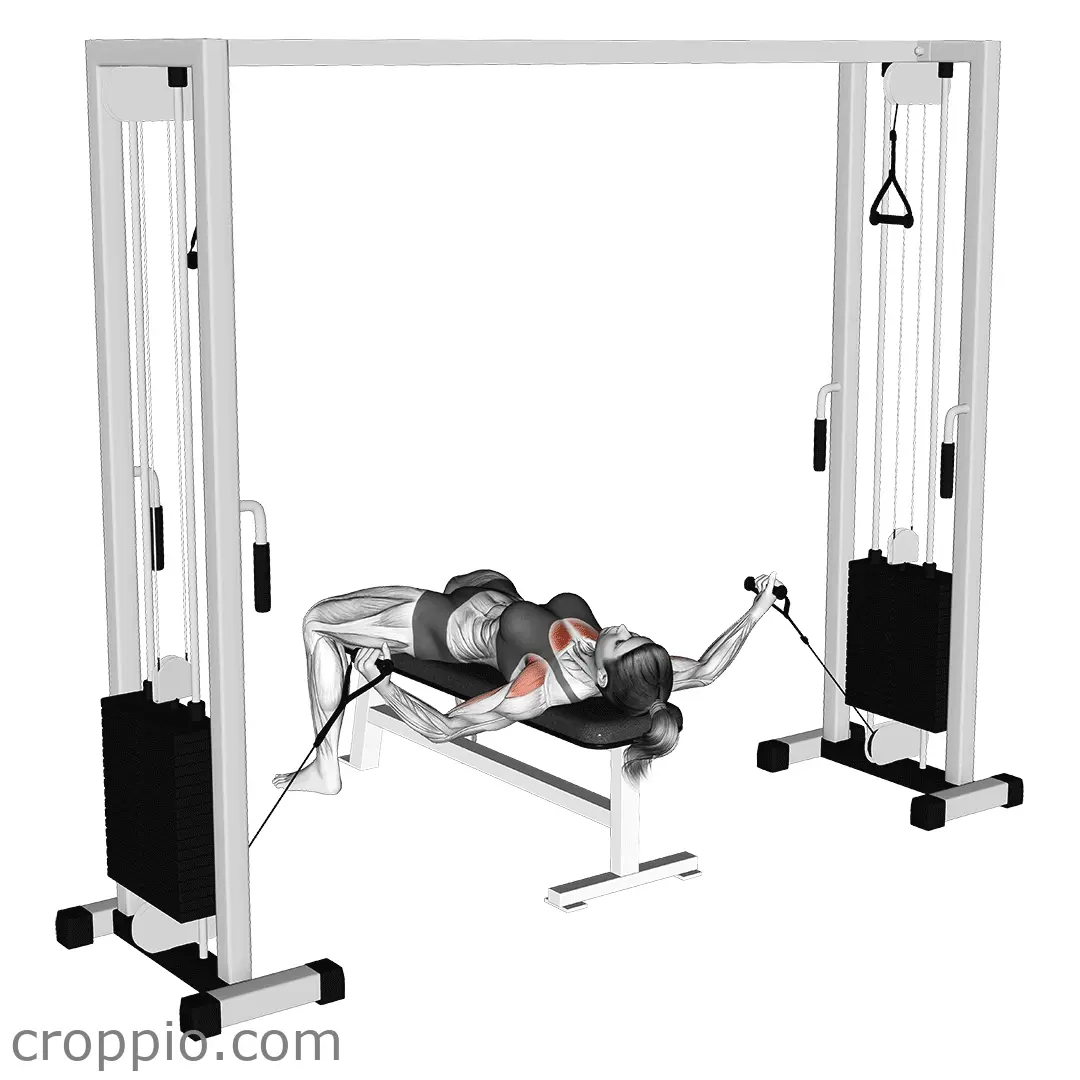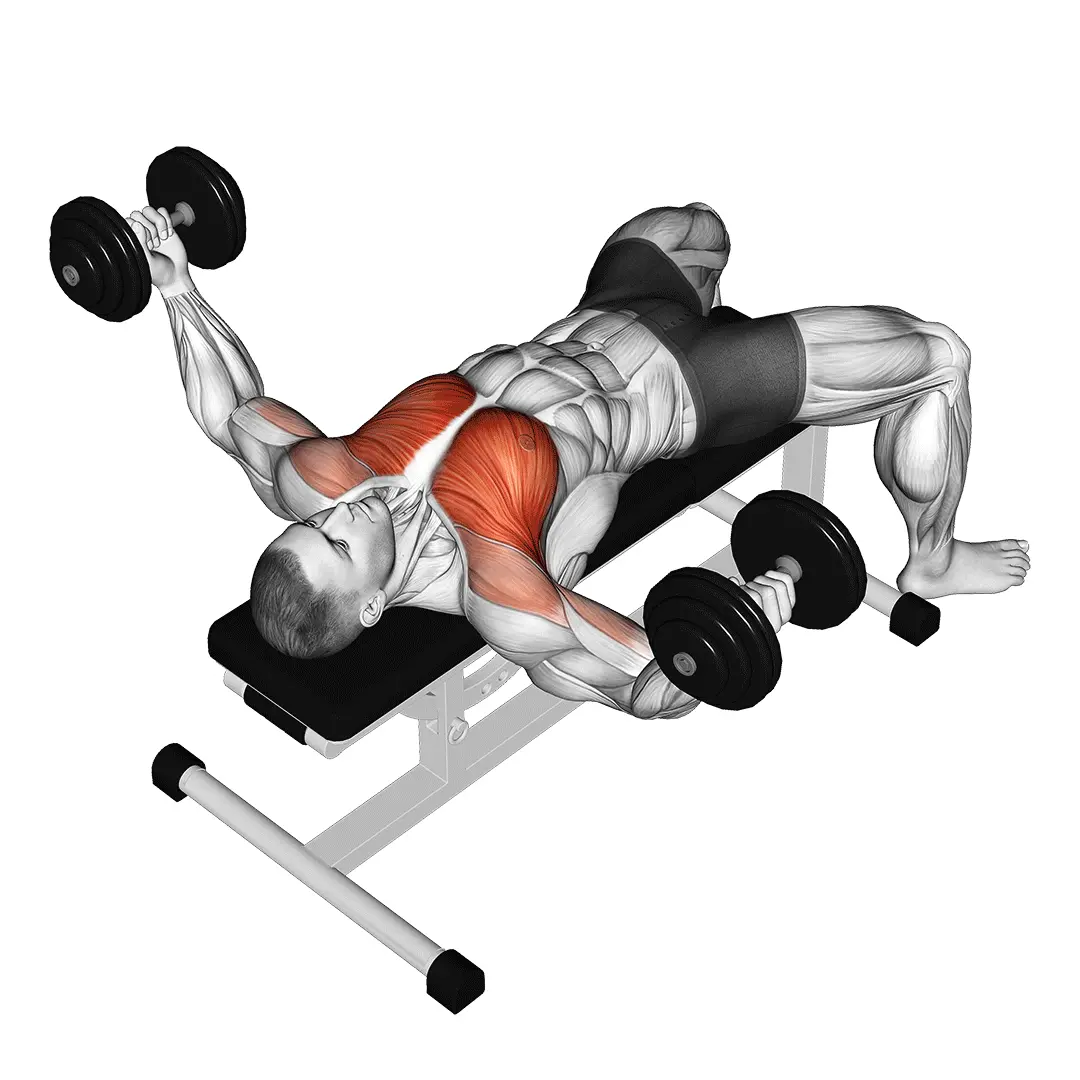Weighted Decline Push Up
Weighted Decline Push Up Workouts
Similar exercises
Description
The Weighted Decline Push Up is an advanced bodyweight exercise that not only challenges your upper body strength but also enhances core stability and overall muscular endurance. By elevating your feet and adding weight, this variation of the standard push-up increases the difficulty, focusing primarily on the pectoral muscles, shoulder deltoids, and triceps. Incorporating this exercise into your training routine can lead to significant improvements in pushing strength and muscle hypertrophy.
Muscles Involved
This exercise engages multiple muscle groups, including:
- Pectoralis Major
- Deltoids (anterior and lateral)
- Triceps Brachii
- Rectus Abdominis
- Transverse Abdominis
- Serratus Anterior
Top Mistakes
Common mistakes to avoid while performing the Weighted Decline Push Up include:
- Letting the hips sag or rise, which can lead to improper spinal alignment.
- Using too much weight that compromises form.
- Not maintaining a full range of motion, which limits muscle engagement.
- Holding your breath rather than focusing on controlled breathing.
Execution Tips
To perform the Weighted Decline Push Up effectively, follow these tips:
- Start by placing your feet on an elevated surface, such as a bench or box, ensuring they are secured and stable.
- Gradually add a weight plate on your back, ensuring it's centered and securely positioned.
- Adopt a plank position, with your hands shoulder-width apart and your body straight from head to heels.
- Lower your body in a controlled manner, keeping your elbows at a 45-degree angle to your torso.
- Push through your palms to return to the starting position, exhaling at the top. Maintain a neutral spine throughout.
Workouts
Integrate this exercise into your workout routine by doing:
- 4 sets of 6-10 repetitions, aiming for progressive overload.
- Supersetting with Dumbbell Bench Press for increased chest activation.
- Pairing with core exercises, such as Planks or Hollow Holds, for a comprehensive workout.
Conclusion
The Weighted Decline Push Up is a powerful compound exercise that not only enhances your upper body strength but also engages your core. By avoiding common mistakes and implementing effective execution tips, you can maximize your gains while minimizing injury risk. Incorporate this exercise into your regimen for a challenging and rewarding addition to your strength-training routine.









